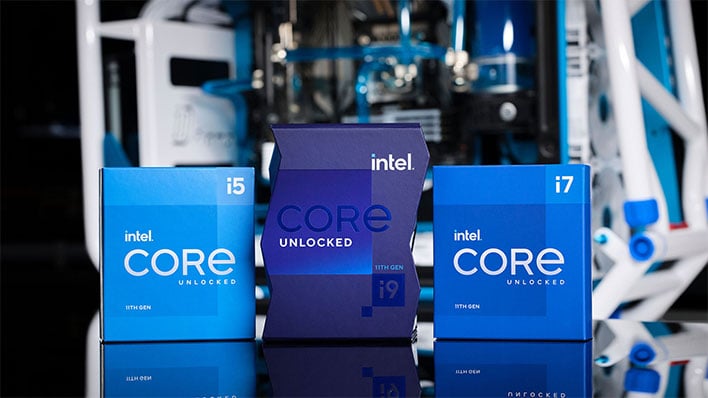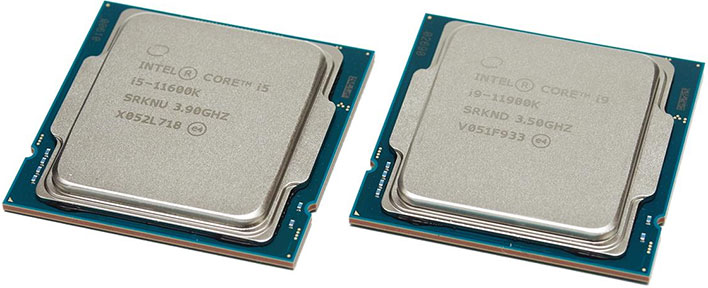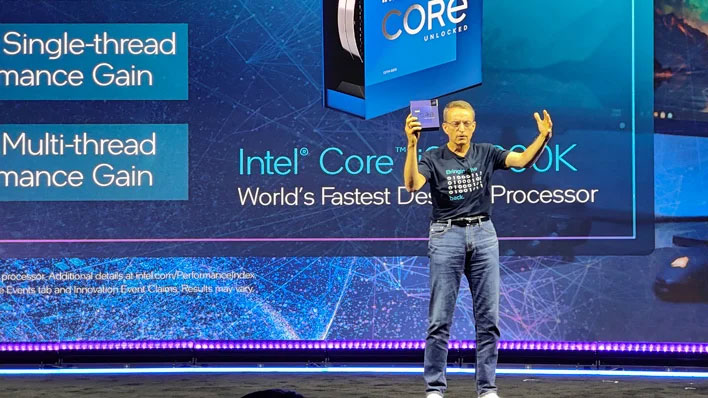Intel Sunsets 14nm Rocket Lake CPUs As It Goes All-In With Hybrid Chips

Intel has branded its 11th Gen Rocket Lake CPUs as having reached End of Life (EOL) status and just like that, my main PC with a Core i9-11900K processor is obsolete at the ripe old age of less than two years. Okay, not really (about the latter part)—if you own a Rocket Lake build, your system is not obsolete in the way that matters, which is performance. However, the EOL update does underscore the relentless pace of technology, as well as Intel's aggressive push into hybrid territory.
Viewed from a different lens, technology can also march at a surprisingly slow pace. The retirement of Rocket Lake marks the official end of the Skylake era, which began seven and a half years ago. Intel was overdue for a major change, and it got that with Alder Lake. Rocket Lake was also the last major consumer CPU built on Intel's 14-nanometer node.

Intel Core i5-11600K (left) and Core i9-11900K (right) Rocket Lake CPUs
That's how Rocket Lake will likely be remembered, though it's also an interesting (if not somewhat odd) release in Intel's CPU timeline. Intel backported Rocket Lake's underlying Cypress Cove architecture from its 10nm Sunny Cove architecture that powered its Ice Lake mobile CPUs. The backport enabled higher clocks while rival AMD was kicking out 7nm chips (albeit direct node comparisons between separate designs are problematic) with more cores and threads.
Since then, Intel has gone all-in with hybrid architectures, starting in earnest with Alder Lake. I say "in earnest" because Lakefield was actually Intel's first stab at a truly hybrid design using its Foveros 3D stacking technology, but it only really manifested in a couple of mobile chips (Core i5-L16G7 and Core i3-L13G4).
Alder Lake, on the other hand, succeeded Rocket Lake as Intel's main consumer product line for its desktop and laptop chips, and marked a spirited transition to hybrid computing. Intel's 12th Gen chips pair up to 8 Golden Cove performance cores (P-cores) supporting Hyper Threading with up to 8 Gracemont efficient cores (E-Cores), maxing out in 16-core/24-thread configurations.

Intel CEO Pat Gelsinger holds up a retail boxed Raptor Lake CPU
Intel's 12th Gen chips are now a generation old with the launch of 13th Gen Raptor Lake, will be followed by Meteor Lake, Arrow Lake, and Lunar Lake, all of which will keep the hybrid train rolling down the tracks and into the angstrom era.
Getting back to Rocket Lake, Intel released a Product Change Notification (PDF) that shifts its 11th Gen Core i9, Core i7, Core i5, and Xeon W-series processors (both boxed and tray) into EOL status. Same goes for some accompanying 500-series and 400-series chipsets.
It's more of a drawn out retirement party, really. Rather than vanish in the blink of an eye, Intel will still process boxed and tray orders for Rocket Lake CPUs through August 25, 2023. The final shipments for Rocket Lake orders will go out on February 23, 2024 (just over a year from today).
Even after that date, you'll likely be able to find Rocket Lake chips at retail sites, though by then I don't suspect many people will be building a new PC around 11th Gen hardware. Even right now, those looking to save a few bucks are advised to shop Alder Lake.
Either way, the 14nm era for all intents and purposes has come to a end.

